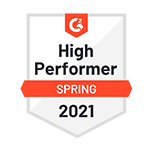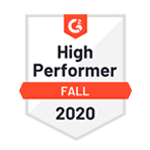
Most of us anticipated, at the beginning of 2021, that things would return to normal. Vaccines were beginning to roll out, and many experts felt like it would involve a couple of years before we would all resume the in-house work environment. In the past, all recruiters had to do was advertise the job vacancy and receive the applications. This is high time where it is recruiters have to struggle to find qualified talent. New talent acquisition trends are now surfacing in the recruitment world. This shift in the employment model has changed the entire demographic of the talent acquisition cycle. Now, the employees prefer employers who do not just offer fancy payrolls alone. Many factors such as fulfillment, healthy workplace, candidate experience, and employee recognition have now come to play their role.
Thus, 2022 will see an increase in the level of instability. Work environments may briefly return to being remote once more as new developments emerge. The overlap of work will exacerbate the uneven nature of where, when, and how different representatives are going about their work. Numerous representatives are welcomed with genuine pay cuts as yearly pay increments fall behind the expansion. These talent acquisition trends will be layered on top of longer-term innovative change, proceeded with DE&I ventures, and progressing political instability.
The 5 Top Talent Acquisition Trends Shaping Workplace Environment in 2022
Data-Driven Recruiting
The present talent acquisition leaders are the ones who guarantee their groups have the two information-driven outlooks as well as the imperative innovation that empowers their organizations to execute information-driven recruiting and talent acquisition strategies. That is, they utilize constant analyses and experiences – from pipeline development measures and employee recognition rates (by group, office, and area) to the quality and cost of recently added team members and up-and-comer input scores – to help them for the time being and long-term ventures.
An insight into the future suggests that recruitment problems are not going to end any time soon. In fact, according to ManpowerGroup, the talent shortage in the USA has tripled in the last decade. Whereas, more than 69% of companies are thriving to fill job vacancies.
Artificial Intelligence and Automation
Artificial intelligence (AI) is one of the arising trends in talent acquisition processes. AI integrations are changing the talent acquisition trends such as candidate assessment and screening, which is changing the HR and onboarding processes. Onboarding specialists and general employee executives could improve by and large by incorporating recruitment chatbots in enrollment processes.
Artificial intelligence can automate applicant sourcing by surveying and screening candidates, which, therefore, could upgrade the enrollment processes. It can turn into one of the worldwide talent acquisition trends since it would give additional knowledge to the recruiters alongside the applicant’s work insight, education, and demographics.
Competing for talent across industries
Traditionally, employers look for talent within their own organizations, but today’s job seekers look outside of their own organizations. Of almost 50% of employees who mean to make career changes because of the pandemic, 33% said they’re keen on evolving enterprises. That implies, for instance, you might have less qualified administrators to browse since some chose to seek after a career in client assistance, IT or something different through and through.
That is the pandemic provided many with significant time for self-reflection, during which numerous employees reconsidered their careers. Whether it was just having more opportunities to recognize their actual needs or really seeing the beneficial outcomes of being away from their old jobs, numerous employees made plans to make another beginning in the new normal. Considering that, employers can never again depend on the talent pools they once did. All things being equal, they’ll presently need to get ready to handle battles for candidates across companies.
Proactive Recruiters
Proactive recruitment managers will rule the recruitment business in the years to come. It will happen on grounds that advanced recruitment tech, computerized channels, and automation render a more aggressive talent acquisition process. This makes a serious challenge where recruiters need to use innovation to remain significant and ahead of the competitors. Consider utilizing AI-driven queries to monitor the candidate experience, and execute CRM systems to improve the recruitment cycle.
Current talent acquisition trends require a cutting-edge way to deal with recruitment and maintenance. You really want to keep steady over the most recent talent acquisition trends to flourish as a recruiter in 2022. These patterns will shape the future of talent acquisition trends and render these processes faster and more efficient.
Adaptable skills
In particular businesses, it is turning out to be increasingly difficult to source quality candidates. Accordingly, recruitment managers have begun to look past the constraints of their industry to track down talented candidates. Instead of searching for pertinent past work experience, recruiters will progressively work on adaptable abilities to extend their talent pool. Adaptable abilities incorporate critical thinking, versatility, correspondence, and creativity, and that’s just the beginning. This talent pool is often called as passive talent.
In effect, the future of talent acquisition is changing globally. The top 5 talent acquisition trends are mentioned to provide you with an idea about current talent acquisition practices. The future of hiring is bright for recruiters who are wise enough to incorporate these talent acquisition trends in time. RecruitBPM offers one of the most efficient applicant tracking systems to facilitate organizations in incorporating the best talent acquisition trends.


























